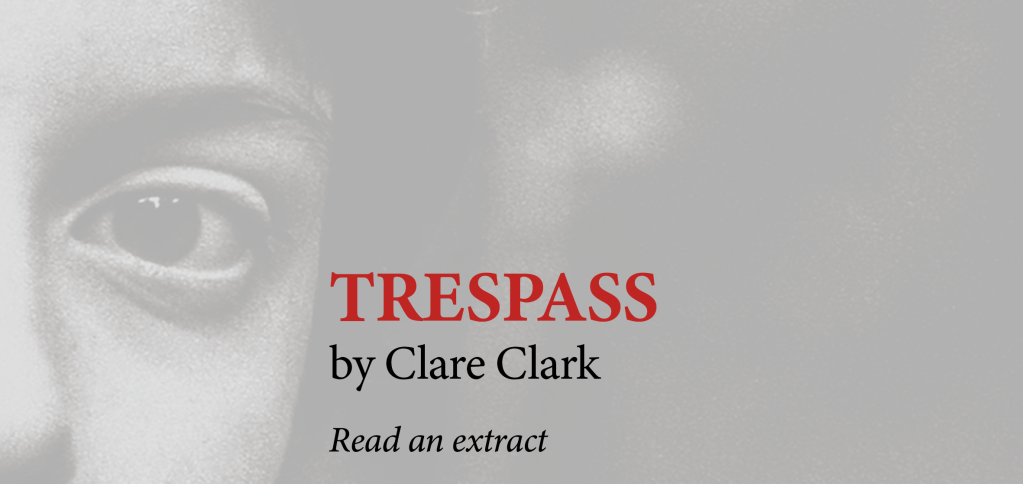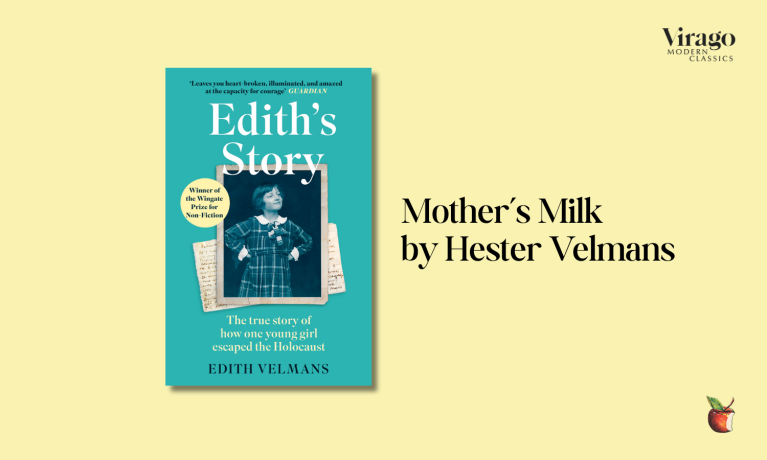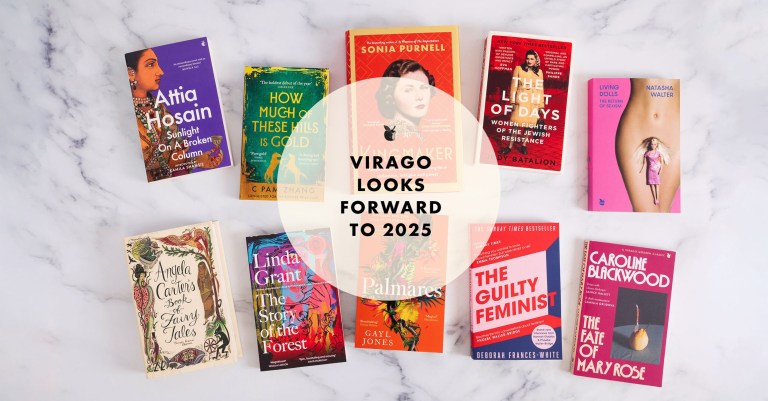Trespass by Clare Clark: Read an Extract

`A magnificent, nuanced and intricate novel. Trespass is as political as it is personal, both moving and psychologically fascinating ‘ Sadie Jones, author of The Outcast
`A novel about love — and state-sanctioned impunity … Paranoid fantasy or reality? Brilliant, chilling’ – Helena Kennedy QC
As a teenager, Tess falls into environmental activism – and the arms of an older, charismatic protester. She has never been happier. When he suddenly disappears, leaving her pregnant and alone, she is shattered. Slowly, though, she rebuilds a life for herself and her daughter Mia. ‘We’re all we need,’ she sings to Mia as they dance around the kitchen. ‘Me and you, us two.’
But, as Mia nears her thirteenth birthday, the death of a relative sparks questions – about activism, about her family, about her father – that Tess cannot answer. And when a hidden letter is found, Tess suddenly has urgent questions of her own. As mother and daughter pull apart, caught up in their own private quests for answers, the certainties of memory and history begin to unravel and a single shocking question emerges: if your past is all a lie, then who are you?
Clare Clark is the author of six highly acclaimed historical novels, including The Great Stink, Savage Lands (both longlisted for the Orange Prize) and The Nature of Monsters. Born in 1967, she graduated from Trinity College, Cambridge with a double first in History, and now lives in London with her husband and two children.
* * * * *
Prologue
There are flowers in the memorial vase, bright splats of red and pink and orange like a kid’s painting. Zinnias. He has always hated zinnias. The sun blazes against the dark granite of the head-stone, making the gold letters gleam.
In Loving Memory of Harry Taylor
An Angel on Earth and an Angel in Heaven
Rest in Peace
He wipes his forehead with the palm of his hand. He can smell the booze sweating out of him, the stale morning-after reek of it. His mouth tastes sour. In the thick dazed heat of the afternoon he hears the distant roar of traffic on the A59. It sounds like the sea. The last time he was here, the only other time, it was February. He remembers it exactly, the sharp burn of ice in the wind and his feet half frozen, white tulips in the vase. The first flicker of unease. The first hint that maybe this was more than just a game, a game with serious intent but a game all the same. A beautiful, intricate game where you were both player and piece, practised over and over until you never made a mistake, until the game was the safest thing you had.
He squats by the headstone. The flowers are fresh. Zinnias are like cockroaches, indestructible, but everything wilts in this heat. She has been here today. Perhaps she is still here. What will he do if she asks him what he is doing here, what will he say? His skin prickles. He wants to run. He straightens up and slowly, very slowly, he turns round.
No one is there.
He closes his eyes. Sweat greases his scalp. His head throbs, his hand too. It usually only bothers him when it’s cold. He presses his thumb hard into the scarred skin, presses till the pain is in his shoulder, the base of his skull. He should never have come. It was stupid to think it would help, that it would make things clearer. Stupid and deluded.
Rest in Peace.
How long since any of them have been able to do that?
1
Tess made coffee properly for once, the French way, in the battered old aluminium espresso pot with the black handle.
She even heated the milk, twirling the pan as she poured so that the foam made the shape of a heart, a heart with one side much fatter than the other, maybe, but a heart nonetheless. It was early, or early for a Saturday, but it was already hot. Upstairs Mia was still sleeping. In a month she would be a teenager and then presumably she would sleep all day and only come out at night, like a badger. Maybe, like a badger, she would even learn to make her own bed. Tess took her cup outside. The garden chairs were grimy, silvered with snail trails. She had bought them as a set on eBay last summer, four of them with a matching table. The purchase was intended to mark the official end of six years of neglect, a declaration of commitment to a proper grown-up garden. A year later, it remained the full extent of her efforts. The tiny lawn was a jungle, the tangled grass studded with dandelions. Weeds pushed up between the flags of the patio. Dragging the least dirty chair into a triangle of sunlight Tess sat down. This summer, she thought idly, sipping her
coffee, this summer I am going to get it into shape.
The sun was bright. Tipping the chair onto its back legs, Tess rested her head against the warm brick of the wall. She could be in Rome or Barcelona. She put her cup on the table and closed her eyes, pushing down the narrow straps of her top so that they looped around her arms. She was pretty sure women in Barcelona didn’t have suntan marks from their pyjamas.
Something landed softly on her arm. Tess brushed it away. All along their street in Palmers Green the houses were being tarted up, lawns being replaced with Astroturf and wooden decking, front gardens concreted over for off-street parking. By letting the garden run wild, Tess thought, she was at least providing a valuable habitat for wildlife. She could feel the heat of the sun sinking into her skin like oil. Stretching luxuriously, her eyes still closed, she reached out for her coffee.
She felt it in her mouth before she swallowed. Something insubstantial but also solid, like a tangle of threads knotted together. Grimacing, she spat. A flying ant, its ant body capped with pale papery wings. She pressed her tongue against the roof of her mouth, trying to extinguish the memory – or had she just imagined it? – of the creature writhing against it. She could still taste its bitterness at the back of her throat.
Another ant landed on her thigh. She slapped at it. Glancing irritably down at her leg as she flicked it away, she recoiled. The ants were everywhere. The patio seethed with them. They swarmed over the flags, oozing up from between the weed-clotted gaps like the ground was sweating them out. They clustered on the legs of the table and over the shallow step to the kitchen and along the sill of the garden door, a rolling boil of black bodies and glistening wings. There was one on Tess’s bare foot. She kicked out blindly, folding her knees tight into her chest.
Abruptly, too loud, she heard someone calling her name. Her phone, it was just her phone. Mia had personalised the ringtone.
Jeez, Tess, pick up already! Mia’s laughter breaking through her terrible American accent. Tess ran into the house on her tiptoes, the soles of her feet shrivelling. Even after she closed the door she could feel the whisper of ants on her skin, in her hair. The number on her phone was international, +33. France.
‘Hello?’ she said. Her mouth was dry, the word stuck to it. The espresso pot was where she had left it on the hob. Its faceted side caught the light and she thought suddenly, wildly, of Aladdin’s lamp and the genie inside who granted every wish.
‘Hello, Tess. This is Delphine.’
Tess’s fingers tightened around the phone. Tess’s father and Delphine had been divorced for ten years. There was only one reason she would call Tess now. Don’t say it, Tess pleaded silently. Please, Delphine, please, whatever it is you are about to say, don’t let it be that.
‘It’s Sylvie,’ Delphine said.
Sylvie, Delphine’s mother and Tess’s – Tess’s what? If there was a word for it, in French or in English, Tess had never known it. Dark clumps of ants clotted on the sill outside the window. She stared at them as Delphine talked, her voice quiet and flat as though everything she said had been said too many times before. She told Tess that Sylvie had been feeling under the weather for months, not that she admitted it, of course. That two days ago she had woken in the night with pains in her chest and abdomen. She called an ambulance, she thought she was having a heart attack, but when they scanned her they found tumours in her liver, her lungs and her stomach. The one in her stomach was bleeding. They gave her a blood transfusion but the cancer was too far advanced, there was nothing else they could do. Delphine’s English was as flawless as ever, almost without accent. Tess made herself look at the ants on the window, their wings glittering like splinters of glass. The consultant had told Delphine that they would need to keep Sylvie
under observation in the ICU for at least the next few days. After that, if her condition was stable, there was a hospice in Brest. The staff were wonderful and it had a garden. They would do everything they could to make her comfortable.
‘A hospice? But surely—’
‘Please don’t.’ Delphine exhaled wearily. ‘Sylvie – I cannot fight you too.’
In all the time she had known her, Tess had never heard Delphine call her mother by anything but her first name. She had never found it strange till now. She pressed her phone to her cheek and looked at the espresso pot, the flare of sunlight on its lid. A hos- pice. The place you went to die, when dying was all that was left. ‘Look, the consultant is here, I have to go back,’ Delphine said.
‘I wanted to call, that is, the reason I am calling, I am not sure if this is appropriate, perhaps you will decide that it is not, it has been a long time, I understand that, but the doctors, they are not hopeful. If you wish to see her, if that is what you want, then you should come soon.’
Sylvie was dying. The words were sharp and clear, cut into Tess’s brain, and yet there was no sense in them. It wasn’t possible, not Sylvie, not yet. Sylvie was never ill. She was never even tired. The force of life ran through her like she was where it started. Tess tried to picture her in a hospital bed in a hospital gown, tubes running into the backs of her hands, but all she could see was Sylvie stand- ing on the rocky promontory in her faded black swimsuit, her arms outstretched and her face turned up towards the rain, her hair streaming like seaweed down her back. The shout of laughter as she arced into the air and was gone.
In the garden the ants were taking flight, clouds of them swirling upwards like ash from a bonfire. When Tess closed her eyes, the ants went on rising in the darkness, only now the swirls were silver.
‘Look Tess, I’m sorry, I need to go. I’ll ring you back, OK?’
Tess put her phone down on the kitchen counter. She thought of the tumours growing silently in Sylvie’s body, making new shapes from the meat of her, sucking and twisting her into themselves to make bodies of their own.
‘Making art is like keeping a dragon in your cellar,’ Sylvie told her once. ‘Some days you feel utterly invincible. Some days you go up in flames.’
Sylvie couldn’t be dying. She was Sylvie. And she was only sixty-four.
Suddenly Tess’s head was too heavy for her neck. She leaned against the garden door, resting the weight of it against the glass. Above her, above the roofs of the houses that backed onto theirs, the sky was filled with birds. Seagulls, perhaps, though they didn’t scream the way seagulls usually did. They wheeled and swooped in silence, feasting on the glutted air.
It was eight years since Tess had left Sylvie’s house for the last time. There must have been cicadas that day, birdsong, the dis- tant shush of the sea, but Tess remembered only the silence and Sylvie standing at the gate, her face like the face of the wooden saint who proffered his bread in Quimper cathedral, sombre and unshakeable. She was still standing there when Tess turned the corner out of sight.
A few months later she sent Tess a letter. It was March. Mia was five years old. There was snow in London and white blossoms like scraps of tissue on the spindly cherry trees along the street. Sylvie’s handwriting was like Sylvie, too big for the page. Tell her, the letter said. There will never be a better time than now. Tell her and bring her home. There is something I need to tell you too. The letter reawakened all of Tess’s anger and her fear. She knew that, if she did not answer, Sylvie would not write again. Sylvie never tried to change people’s minds. She couldn’t see the point. The people she loved, the people that mattered, those people made their way as she did, unerringly, their compasses turning them towards true North. As for the others, they hardly mattered at all.
Tess looked at the letter for a long time. With each sentence she felt Sylvie’s hands on her shoulders, turning her against herself. When it was time to fetch Mia from school, she tore the letter into small pieces and put them in the bin. Later that night she took them out again and burned them in the kitchen sink. Mia couldn’t read and she couldn’t reach the bin but Tess couldn’t shake the fear that she would find the torn-up words and put them together. That somehow the words would find her.
She never wrote back. Since then many years had passed. Tess noticed them pass, with a child you couldn’t help but notice, but she did nothing. What could she do? What Sylvie asked of her was impossible. With every year it grew more impossible still.
Eight years of not speaking. And yet she had always believed that the silence would come to an end. The weight of their past required a future to balance it. One day, not yet but soon, they would shake things out between them like one of Sylvie’s much-darned linen sheets, the ones they used to launder together and lay out over the rosemary bushes to dry in the sun. When they put them back on the beds, the scent of them was the scent of something just beginning. When Tess looked up again the sky was empty. The birds were gone. Already the flying ants were thinning. By this afternoon only their wings would be left, scattered like torn-up ticket stubs across the patio. Then the birds would eat those too. Her unfinished coffee was still on the garden table. The coffee Sylvie had taught
her how to make.
She closed her eyes, her arms tight around her ribs. Her heart howled. There was supposed to be so much time left.
Mia glared out of the window at the dry yellow grass, the rubbish strewn along the side of the motorway. She had pulled down the plastic visor above the windscreen but the sun was still too strong. It burned her bare arm through the glass. Her legs fizzed from sitting still too long and she was starting to feel carsick. Beside her, her mum leaned forward, her hands so tight on the steering wheel that her knuckles shone like teeth. She kept blinking and rubbing her eyes but she wouldn’t stop, not even when Mia said she was hungry and needed the toilet. She said it wasn’t very far now and there was chewing gum in the glove compartment and went on driving. It was an hour earlier in London. Yaz would be getting ready. They all would, everyone except her. Mia bit her thumbnail savagely. She wanted to scream at her mum, to tell her she had ruined everything forever because, if it wasn’t for her, she wouldn’t be in this stupid car at all, she would be going to Lauren’s, Lauren who had invited Yaz to her party and not Mia but who finally messaged her yesterday and said she could come if she wanted, Lauren who had never asked her before and now most likely never would again because Yaz said girls like Lauren only ever gave you one chance, and for what? For an old woman her mum hadn’t seen since Mia was little, a woman she wasn’t even related to, not since Grandpa Ivo and Delphine had got divorced, a woman who never visited them or asked them to visit or even sent her a birthday card, only none of that mattered when someone was dying; when someone was dying you weren’t allowed to be angry, all you were allowed to be was sorry and sad, even when the person dying was a total stranger, and anyway that wasn’t the worst part, the worst, most angry-making part was that it didn’t matter how mean and unfair it was, there was nothing Mia could say because her mum didn’t even know about Lauren’s party, she thought it was just an ordinary sleepover with Yaz because, if she knew about the party and Lauren’s parents being away, there was no way on earth
she would ever have let Mia go.
They drove through a pine wood for a long time, then down a narrow lane with long grass like a mohawk in the middle that rustled against the belly of the car. Halfway down, where the lane turned sharply, her mum stopped the car.
‘Look,’ she said, pointing towards a clump of twisted pines. ‘What at?’
‘The sea, can you see it? We’re almost there.’
‘Then why are we stopping? I told you, I’m desperate for the toilet.’ Tess nodded absently, staring out towards the sea.
‘I’m serious,’ Mia said. ‘For God’s sake, Mum. I’m literally about to pee my pants.’
Tess blinked.
‘Sorry,’ she said and, jamming the car into gear, she bumped down the lane to the house.
The back door was open. Tess called but no one came. She told Mia to use the bathroom at the end of the passage. The toilet had a tank up near the ceiling and a chain to flush it. It looked like something out of a museum. When she came out, Tess was gone. Mia walked back along the passage and into the kitchen. Her mum was leaning on the counter, her back towards the door. Her head was bowed. A thin woman with shiny dark hair and gold buttons on the shoulders of her sweater stood beside her.
‘Mia,’ the thin woman said. She tried to smile but her face didn’t want to. ‘I’m Delphine.’
‘Hi,’ Mia said. She waited for her mum to turn around, to smile at her, but she didn’t.
‘They just called from the hospital,’ Delphine said. ‘Sylvie died.’ Mia looked at Delphine, then at Tess. ‘Mum?’
Tess’s shoulders jerked. She made a strange strangled noise in her throat. Mia stared at the floor. Then, darting across the kitchen, she hugged her mother tightly, her face pressed against her back.
‘It’s OK, Mum,’ she said, and Tess turned round inside the circle of her arms and cried into her hair.






